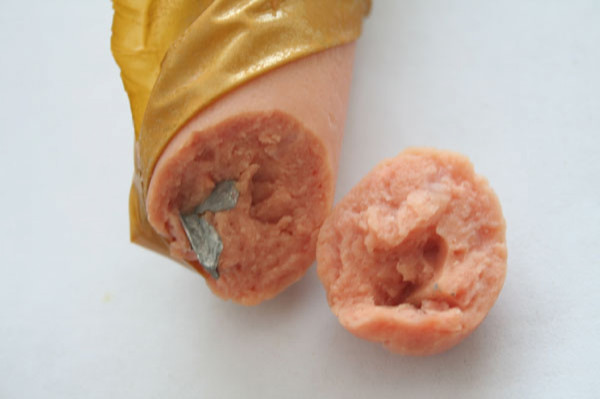Shuanghui: China's Largest Meat Producer Is More Concerned With Its Domestic Market Rather Than Expanding Into The U.S.
The proposed $4.7 billion purchase of Smithfield Foods Inc.(NYSE:SFD), the U.S. largest pork producer, by Shuanghui International Holdings Ltd. (SHE:000895), China’s largest pork producer, appears calculated as much to fix a long-term public relations problem for Shuanghui as it is to expand the company's global reach.
A string of embarrassing food safety disclosures has sullied Shuanghui's reputation, which might possibly improve if it became associated in the public mind with the relatively superior reputation of Smithfield Foods.
What is on the surface the expansion of a Chinese company into overseas markets is "in actuality a move intended to improve Shuanghui’s reputation in the domestic market," according to Li Ying, an analyst for iMeigu, a Chinese website covering news in the U.S. stock market, Sohu News reported.
“It would be difficult for Chinese pork to enter the American market, it is more likely that the acquisition was made with an eye on the domestic market,” said Wang Xiaoyue, an analyst of CnAgri, China’s first agricultural consulting agency, according to Sohu News.
“Smithfield has a lot of great experiences that Shuanghui can use, including its advantage in environmentally friendly meat processing, and will be very beneficial for Shuanghui’s future development in China.”
A major cause of Shuanghui’s food scandals is that the company only raises a small percentage of the pigs it uses – most of their meat comes from independent producers, Wang added.
That’s where the deficiency in food safety and quality control exists. In 2011, China became the third-largest importer of U.S. pork, behind Japan and Mexico.
Smithfield raises 15 million and slaughters 27 million pigs each year, a large portion of which are exported to China, according to iFeng News, a Chinese news agency.
Shuanghui's problems go back several years. In 2011, China Central Television reported that Shuanghui bought pigs that had been fed fodder containing clenbuterol, a harmful addictive known as “lean meat powder” that promotes lean meat growth that was outlawed in 2002. The company’s sales immediately suffered, causing a loss of 1.5 billion yuan ($241 million) from March 16-31, 2011, according to Meat Trade News Daily, an Argentina-based meat trade industry news site. In a campaign to combat the scandal, Shuanghui staged for a manager of the company to munch on a sausage to show it is clenbuterol-free, according to Chongqing Evening News, a regional newspaper in China.

In 2012, Shuanghui found itself in another scandal, when news broke out that Shuanghui-branded ribs were found to contain maggots, and its sausages were tested to have excessive amounts of bacteria colony, according to ChinaScope, a financial data and analytics platform in China. In February, Shuanghui suffered yet another food scandal, when its sausages were found to contain black threads, according to Food Mate, a Chinese food industry news website. As recently as May, Shuanghui sausages were reported to have gone bad well within the sell-by date, according to CN News.

© Copyright IBTimes 2024. All rights reserved.



















